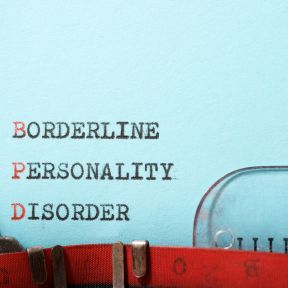Anger is one of the basic human emotions, as elemental as happiness, sadness, anxiety, or disgust. These emotions are tied to basic survival and were honed over the course of human history.
Anger is related to the “fight, flight, or freeze” response of the sympathetic nervous system; it prepares humans to fight. But fighting doesn't necessarily mean throwing punches. It might motivate communities to combat injustice by changing laws or enforcing new norms.
Of course, anger too easily or frequently mobilized can undermine relationships or damage physical health in the long term. Prolonged release of the stress hormones that accompany anger can destroy neurons in areas of the brain associated with judgment and short-term memory, and weaken the immune system.
For those who struggle with chronic anger, or for those who only experience occasional outbursts, learning skills to identify and navigate this powerful emotion can lead to growth and change.

Everyone knows the feeling. It's that rage that rises when a driver is cut off on the highway or an employee is demeaned by his boss. People have trouble managing anger and other negative emotions. However, unleashing anger doesn’t produce the sense of catharsis people crave—it tends to feed on itself instead. The best path forward may be to understand anger—its roots, its triggers, its consequences—and cultivate the ability to manage it.
The question of why some shrug off annoyances while others explode in rage is a fascinating one. One model of anger, put forth by psychologist Jerry Deffenbacher, posits that anger results from a combination of the trigger event, the qualities of the individual, and the individual's appraisal of the situation.
The trigger is the event that provokes anger, such as being cut off in traffic or yelled at by a parent. The qualities of the individual include personality traits, such as narcissism, competitiveness, and low tolerance for frustration, and the pre-anger state, like levels of anxiety or exhaustion. Perhaps most importantly is cognitive appraisal—appraising a situation as blameworthy, unjustified, punishable, etc. The combination of these components determines if, and why, people get mad.
Research suggests that the tendency to become angry is associated with high neuroticism and low agreeableness. Outside of the Big Five personality traits, a few habits and attitudes may be linked to anger. These include:
• Entitlement (believing that one’s rights and privileges are superior to those of other people)
• Focusing on things out of personal control (such as a partner’s behavior)
• External regulation of emotions (trying to regulate emotions by controlling one’s environment)
• External locus of control (believing well-being is controlled by sources outside of oneself)
• Refusal to see other perspectives (viewing different perspectives as threats)
• Low tolerance for discomfort
• Low tolerance for ambiguity
• Hyperfocus on blame
• A fragile ego
Anger is a core emotion, but it may manifest differently based on its source. Justifiable anger is moral outrage at the injustices of the world, such as the oppression of human rights or an abusive relationship. Justifiable anger may have benefits in the short term because its intensity can be channeled into action for change.
Annoyance anger can arise from the many frustrations of daily life. Aggressive anger is used in situations where one individual attempts to exercise dominance, intimidation, manipulation, or control over another. Temper tantrums are disproportional outbursts of anger when an individual’s wants and needs are not fulfilled, no matter how unreasonable and inappropriate.
The relationship between gender, anger, and violence is more complex than people realize, and common beliefs—such as that men are angrier than women—are often false after a close examination of the research.
What’s not as complicated, though, is the relationship between masculinity, anger, and aggression. Studies show that masculinity is associated with anger. When men’s masculinity is threatened, they react with increased anger. Challenging men’s testosterone levels yields a similar effect. And seemingly dormant masculinity often emerges when men get drunk.
In contrast to anger arising from interpersonal conflict—a transgression, or betrayal—moral outrage focuses less on outing someone else’s problematic behavior than inflating one's own sense of self. This type of outrage, called virtue signaling or moral grandstanding, may underscore one's virtuous attributes by pointing out non-virtuous attributes in others. Essentially, putting others down unconsciously raises oneself up.
From an evolutionary perspective, humans aimed to obtain and maintain strong social standing within small-scale communities. Expressing outrage about the behavior of others may partly function to elevate the status of the person expressing the outrage, which may explain why outrage often feels so good.
Revenge involves embitterment, the sense of having been let down or victimized, coupled with a desire to fight back. Feeling helpless to do so then leads to fantasies of revenge or aggression.
Vengeful thoughts may arise in an attempt to protect the self from damaged confidence and self-efficacy, calm feelings of frustration, humiliation, and insult by settling the score between the victim’s suffering and the perpetrator’s actions, and offer a mechanism to regain power and stability.
Thoughts of revenge are especially likely in individuals who have been victimized and traumatized by others. They are more likely in individuals diagnosed with PTSD.
The common advice to “forgive and forget” can be well-intentioned but difficult to internalize. Many people hold deep grudges, even if they don’t want to. This may occur because grudges come with an identity. With a grudge intact, people know they were wronged. There exists a kind of rightness and strength in this identity.
Still, grudges don’t tend to make people feel better or heal their sadness or anger. Shifting focus away from the offender and to the event's consequences allows people to integrate the experience into their narrative and release their grudge.
Anger creates a surge of energy. When that happens, chemicals such as adrenaline enter the bloodstream. Heart rate and blood flow increase, and the muscles tense. This can compromise the immune system and cardiovascular system, which can even shorten the lifespan when sustained.
Excessive and uncontrollable anger can cause rifts in important relationships, challenges in the workplace, and legal and financial problems. Anger can hijack the ability to think clearly, leading to poor judgment and decision-making. It’s often at the root of substance use disorder, domestic violence, abuse and other conditions.

Anger, like all emotions, should be monitored with self-awareness. This can prevent it from spiraling into hostile, aggressive, or violent behavior toward others or oneself.
Support groups for anger management can help people understand anger, identify its triggers, and develop skills to manage their emotions. In groups or individual settings, cognitive restructuring can coach patients to reframe unhealthy, inflammatory thoughts.
Outside of therapy, techniques from deep breathing and emotion labelling to adopting a problem-solving mindset can help people learn to navigate anger on their own.
If you are often carried away by anger, it can be helpful to understand the patterns that trigger you. It's possible to intervene at different points along the way to deal with anger effectively.
1. Sleep: Sleep deprivation makes it harder to control angry impulses, so regular, healthy sleep can prevent you from being provoked.
2. Consider alternative interpretations: And ask yourself what evidence you have to support your angering interpretation. Consider different perspectives.
3. Take deep breaths: Take long, slow, deep breaths, using the diaphragm rather than the chest.
4. Avoid the “catharsis myth”: Venting anger, acting with aggression, and viewing aggressive content does not tend to release anger effectively.
5. Know that it’s ok to get mad: If you have been wronged, treated unfairly, or provoked, you should get angry, but express it assertively instead of aggressively.
In cases of warranted anger, such as a coworker who never contributes to collaborative projects, you may want to use a different set of anger management tips. In those situations:
1. Distance yourself from the angering situation. This will help you stop ruminating and develop a clear path forward.
2. Dedicate time to thinking about how to solve the root problem so it doesn’t occur again.
3. Express your anger assertively, with a solutions-oriented approach, rather than aggressively.
Anger is often a result of misunderstanding other people's actions and assigning our own meaning to them. For example, someone who struggles with anger might say, "He cut me off on purpose! He was out to get me!” or “She was in my face, waving her finger and yelling at me. She deserved to be hit!" These thoughts fuel a cycle of rage; if the “perpetrator” intentionally and maliciously attacked, the “victim” has no choice but to retaliate.
However, considering other perspectives and regulating emotions can manage anger. Instead of assuming the worst, you could consider, “They may not have seen me, or maybe they had a bad day. It has nothing to do with me personally."
Different expressions of anger will elicit different responses, but a few tips can help deal with angry people who are verbally aggressive, insulting, or even threatening:
1. Ask yourself if the anger is justified. There may be something you can do to help resolve the situation.
2. Stay calm. Avoid yelling, swearing, or raising your voice, which may exacerbate the situation. Speak slowly and directly, and keep your voice calm and soft.
3. Avoid character assaults. The middle of an angry exchange isn’t the time to discuss larger problems.
4. Know when to disengage. If the possibility of a positive resolution is unlikely, you may want to end the conversation or walk away.
5. Stay safe. An angry person is not necessarily a violent person. Still, if you feel that you are in danger, exit the situation immediately.
Anger management, which may be taught in individual or group sessions, involves learning to understand one’s anger and developing skills to cope with it. This process involves identifying what triggers anger, strategies for prevention and mitigation, and skills to communicate and solve problems.
Anger management should not attempt to deny a person’s anger. Anger is a protective emotion. But it often functions to protect a fragile ego, which may involve guilt, shame, and anxiety. A technique to reduce anger is to render it unnecessary by enhancing self-worth by reinforcing personal values.
Patients who have severe anger and commit abuse or violence can be challenging to reach in therapy. Overcoming anger often requires acknowledging a patient’s most vulnerable feelings, which is antithetical to the emotionally detached, action-oriented persona they may have adopted to protect themselves. In order to feel in control and avoid their pain, they may throw their weight around, intimidating the therapist and making sure he or she is kept at a distance.
The therapist can aim to be persistent, patient, and avoid being provoked. With enough time, the patient can become comfortable enough to share vulnerabilities that may have fueled patterns of anger and abuse.

Everyone experiences anger at some point. It becomes problematic, however, when the frequency or severity of anger interferes with relationships, work performance, legal standing, or mental health.
While there is no official “anger disorder,” dysfunctional anger and aggression can be a symptom of Intermittent Explosive Disorder, Oppositional Defiant Disorder, Conduct Disorder, and Borderline Personality Disorder. It may also play a role in manic episodes, ADHD, and narcissism.
Anger doesn't require a formal diagnosis to be disruptive, or to benefit from help with its management.
Intermittent Explosive Disorder
Intermittent Explosive Disorder (IED) is an impulse control disorder characterized by repeated angry outbursts, representing a failure to control aggressive impulses. These outbursts can involve verbal or physical aggression and result in property damage or physical injury. These reactions are also severely out of proportion to the event that sparked the episode.
Of the various disorders related to anger, perhaps IED most accurately describes the escalating explosions of violence we are witnessing today such as mass shootings. It may emerge from a failure to recognize and consciously address anger as it arises, before it becomes pathological and dangerous, perhaps starting in childhood.
For more, see Intermittent Explosive Disorder.
Oppositional Defiant Disorder
Oppositional Defiant Disorder (ODD) is a disruptive behavior disorder that involves a pattern of angry and irritable moods and defiant or vindictive behaviors. People with oppositional defiant disorder may lose their temper, lash out impulsively, become resentful, argue with authority figures, refuse to comply with requests, and deliberately annoy and blame others.
Two parts of the brain implicated in this reactive aggression include an overactive amygdala and an underactive prefrontal cortex—the region that helps regulate impulses and inhibit aggression. Medication and therapy—particularly a newer approach called Collaborative and Proactive Solutions—can reduce defiance and anger and teach healthy coping skills.
For more, see Oppositional Defiant Disorder.
Conduct Disorder
Conduct Disorder (CD) is a disruptive behavior disorder involving a pattern of violating norms, rules, and the basic rights of others. Individuals with conduct disorder may bully, threaten, or physically hurt others. They may be cruel to animals, lie, steal, or destroy property.
While Oppositional Defiant Disorder involves reactive, explosive aggression, Conduct Disorder tends to yield proactive, calculated antisocial acts. Some people with the disorder will go on to be diagnosed with antisocial personality disorder.
For more, see Conduct Disorder.
Borderline Personality Disorder
Borderline personality disorder (BPD) is a condition characterized by instability and impulsivity, including bursts of anger or violence. Terrified of abandonment, people with BPD cling to those close to them, crave reassurance and validation, and are deeply upset by seemingly small changes. This turbulence can involve angry outbursts, severe mood swings, hopelessness, paranoia, self-harm, and suicidality.
The overblown rage so common in borderline may stem from problems of trust, such as learning not to trust parents or caregivers due to unreliability, neglect, and criticism. Anger may function as a defense against fears of possible abandonment and rejection.
For more, see Borderline Personality Disorder.
Depression is characterized by consistently low mood and feelings of sadness, emptiness, or hopelessness. Enjoyment and pleasure are diminished while irregularities in sleep and appetite emerge, among other challenges.
Both research and clinical observation have identified a connection between depression and anger. Anger is often a reaction to and distraction from inner suffering—feelings such as sadness, powerlessness, shame, anxiety, inadequacy, and isolation. Anger can be both an outgrowth of, and meaningful distraction, from the intense pain of underlying depression. Similarly, many people who seek help for depression come to recognize how anger directed inward, such as intense self-criticism, blame, and dissatisfaction, contributes to their depression.
For more, see Depression.















